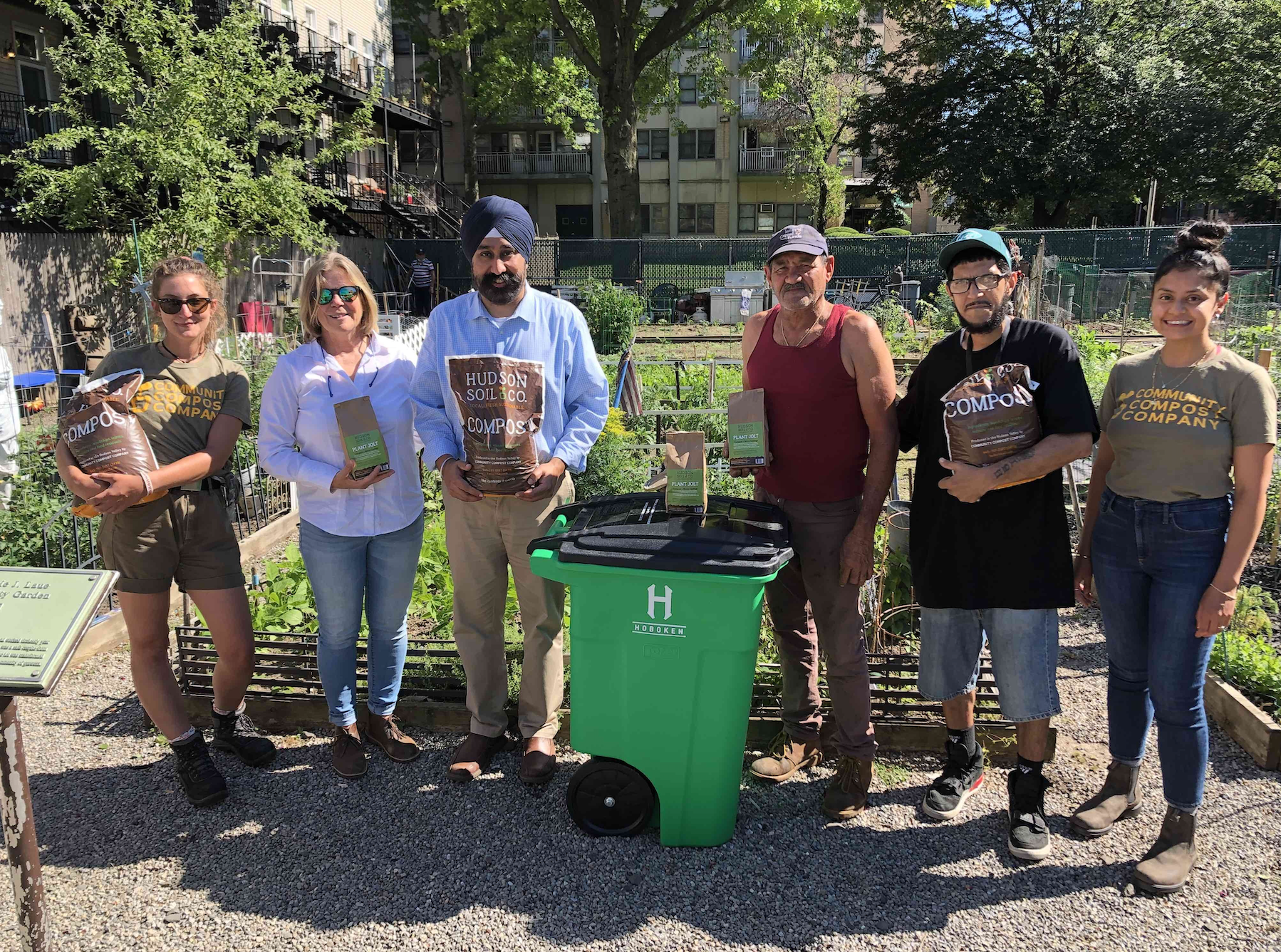Reuse, reduce, recycle. At some point or another we’ve all heard this motto, and its goal is to remind us that we can be doing something to help the environment. In the last few years, green initiatives and programs, like the former, have been created to help protect the environment. Recently, Hoboken decided to expand one of its green programs, the composting program.
The city of Hoboken partnered with the Community Compost Company and the Hoboken Green Team to plan and announce the opening of eight more composting sites, increasing the total to 12 sites all around the city as a way to reduce greenhouse gases and become carbon neutral by 2050. Along with the addition of the new sites, the Community Compost Company will provide a door-to-door collection service of food scraps for residential homes and commercial buildings. The Hoboken press release states that people who participate in this program could reduce their household trash by over 50%. The overall reduction of waste is estimated to result in the prevention of about 5.6 metric tons of greenhouse gas emissions from traditional waste disposal. Mayor Bhalla said that “Hoboken will continue to be a leader in environmental sustainability,” and the expansion of the composting program plays an integral part in that.
What exactly is composting?
It’s the process of turning organic material, like food scraps, into fertilizer that will help the soil.
What are the benefits?
The reuse of organic material reduces the amount of waste that goes to landfills and limits the number of greenhouse emissions that come from landfills. Composting also decreases the need for chemical fertilizers, which harm the environment by polluting our waterways and the animals living there. In some instances, using compost as fertilizer can help the restoration of topsoil. Topsoil is used for agricultural purposes in the U.S., and it is eroding nine times faster than its natural replacement due to the gradual removal of natural nutrients. Composting can help replenish the nutrients in the soil as well as help the soil retain water after rainfall.
How does composting help against climate change?
In 2015, Americans landfilled or incinerated 50 million tons of compostable waste. Compostable, or organic, waste does not decompose at landfills due to the low-oxygen conditions; instead, it degrades and releases methane. Methane is a greenhouse gas that is 56 times more potent than carbon dioxide, and as of right now, landfills are the third largest producer of methane in the country. On the other hand, composting allows microorganisms to grow, which can actually help absorb carbon dioxide from the atmosphere. Therefore, in the battle against climate change, it is vital to decrease the number of greenhouse gases that we release significantly, and composting can help with this by reducing the amount of waste produced.
Mayor Bhalla said that “composting is a simple but effective way to help Hoboken achieve the goals of our Climate Action Plan.” If we look at other cities around the United States that also have composting programs, we can see that it helps the environment. For example, in 1996, San Francisco was the first city in the U.S. to implement a large-scale food composting program. By 2000, the city had managed to divert 50% of its waste from landfills. In 2002, the city committed to diverting 75% of its yearly waste by 2010. In 2011, they surpassed their goal by redirecting 78% of their waste. Since then, they have been the top city for reducing landfill waste because their composting program and recycling programs have managed to reduce the amount of trash that goes to landfills by 80% every year. Portland, Oregon, is another good example of a composting program that has significantly reduced waste. In 2011, Portland implemented their composting program, which included curbside pickup; currently, the city composts about 70% of their waste. These two cities have shown that city-wide composting programs are beneficial, and other cities are following in their steps. In the last five years, the number of communities that are offering composting programs has increased by 65%.
The Hoboken Climate Action Plan lists the goals of being carbon neutral by 2050 and reaching net-zero by 2030. The composting program in Hoboken, which started in 2015, has already diverted 96,020 pounds of waste from landfills, prevented 42.28 metric tons of CO2 emissions, and avoided the use of 2,743 gallons of gas. This updated program has in common some of the features that have worked in other cities, like curbside collection and multiple drop-off sites. Therefore, the city of Hoboken can say it has taken adequate steps towards its goals of carbon neutrality and environmental sustainability.

Be First to Comment